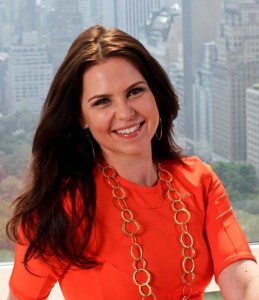Learning to say an authentic NO versus an inauthentic YES
How often do you say YES, when you really mean NO? It can be tempting to say YES, because the alternative can often feel icky. Many people are prone to self-judgment if they dare say NO – with the inner critic calling us all sorts of names, including selfish, lazy, pompous, self-important, and uncaring. Confronting the self-judgment can feel really uncomfortable, because our secret fear is often “what if it’s true?”. What if we ARE selfish, pompous and uncaring? So it seems easier to momentarily suppress our need for self-honoring choices and go along with the YES.
The problem is that while it can be tempting in the short term to override our limits and say YES when we really mean NO – it usually leads to resentment. It also means we’re not making self-honoring choices, we’ve overridden our boundaries and we’re not taking great care of our self.
To take this one step further, if we don’t consciously challenge our inauthentic YES’s, the resentment can breed a sense of righteous anger. Once we are relating from a place of righteous anger, we have gone into the one-up position, feel a sense of superiority, and have stopped relating to the other person as a precious human being. It’s also the place where we can “pick a fight”, unconsciously justifying our behavior from the place of righteous anger and ironically reversing the self-judgment and pointing the finger at the other person – now judging them as selfish and inconsiderate for asking in the first place.
Saying NO can be really hard. I’ve seen it happen to most of us, myself included. I’ve been working my process around this for years, and I still slip up sometimes, going into over-responsibility, and wanting to be seen as nice and caring, OR it’s because I don’t want to deal with feelings of guilt for saying NO.
And I’ve found women in particular often have a hard time in saying NO; with families, friends, and in the workplace. Even though we’ve come a long way, I don’t think many of us have broken out of the Nice Girl Stereotype, which is often seen as caring, kind, considerate of other people’s needs and wanting to be liked.
If you subscribe to the stereotype, then as a Nice Girl you definitely don’t want to be called selfish and very few want to be seen putting their needs at the expense of others. It can be a very confining place to be. This is why it’s extremely important we all start to examine our inauthentic YES’s and look at what’s underneath.
Taking time to get in touch with who we are, knowing we have a right to healthy needs and wants, a right to make self-honoring choices and set boundaries AND we have a right to say NO when it doesn’t feel authentic.
Our self-worth is not based on the opinions of other people, or on what we do, don’t do. We are worthy for who we are – this doesn’t need to be bought.
Next action step: Next time someone asks you to do something, slow it down. Take a moment to consider the request and don’t be in a rush to respond. Remember, we give our best when our emotional cup is full, and we are giving from the overflow. Encourage people you are close to, to say NO to your requests – and give the same permission to yourself. This way you are more assured that their YES’s, as well as your own, are authentic YES’s; and not a NO which probably seeps out at some point as resentment.
The advice written by Julie-Ann Tathem, Tathem LLC is opinion based and for entertainment and informational purposes only. It is not intended to be in place of a consultation with a health, tax, legal or other professional.
Leaving a successful career in Wall Street behind, Julie-Ann Tathem was able to realize her dream of combining the love of psychology, spirituality and business to start her own business and life coaching company, Tathem LLC. She gets to do what she loves every day: assisting people from around the world to see their lives anew and empowering clients to make better choices and live more meaningful and fulfilling lives. You can contact Julie-Ann at julieann@tathemllc.com, and follow her on Facebook and Twitter.
